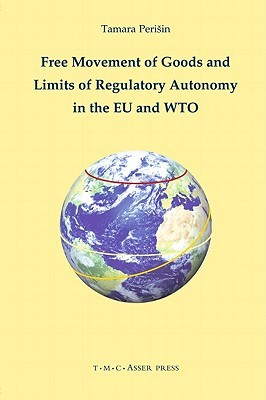
- We will send in 10–14 business days.
- Author: Tamara PeriSin
- Publisher: T.M.C. Asser Press
- ISBN-10: 9067042900
- ISBN-13: 9789067042901
- Format: 16.5 x 24.4 x 2 cm, hardcover
- Language: English
- SAVE -10% with code: EXTRA
Free Movement of Goods and Limits of Regulatory Autonomy in the EU and WTO (e-book) (used book) | bookbook.eu
Reviews
Description
In every system aimed at trade liberalisation, it is necessary to balance this goal with the protection of (other) values. Not only does this have economic implications, but it also strikes at the heart of regulatory autonomy, sovereignty, division of power between levels and branches of government and constitutionalism. The optimal balance necessarily depends on the system's aims, structure, membership and level of homogeneity. This book explores this broad idea in the specific context of the EU and WTO rules on non-pecuniary restrictions on the free movement of goods and seeks to establish how to optimally interpret them. Furthermore, it demonstrates that the EU internal market rules have strong external effects which can be felt within the WTO.
EXTRA 10 % discount with code: EXTRA
The promotion ends in 20d.19:05:57
The discount code is valid when purchasing from 10 €. Discounts do not stack.
- Author: Tamara PeriSin
- Publisher: T.M.C. Asser Press
- ISBN-10: 9067042900
- ISBN-13: 9789067042901
- Format: 16.5 x 24.4 x 2 cm, hardcover
- Language: English English
In every system aimed at trade liberalisation, it is necessary to balance this goal with the protection of (other) values. Not only does this have economic implications, but it also strikes at the heart of regulatory autonomy, sovereignty, division of power between levels and branches of government and constitutionalism. The optimal balance necessarily depends on the system's aims, structure, membership and level of homogeneity. This book explores this broad idea in the specific context of the EU and WTO rules on non-pecuniary restrictions on the free movement of goods and seeks to establish how to optimally interpret them. Furthermore, it demonstrates that the EU internal market rules have strong external effects which can be felt within the WTO.


Reviews